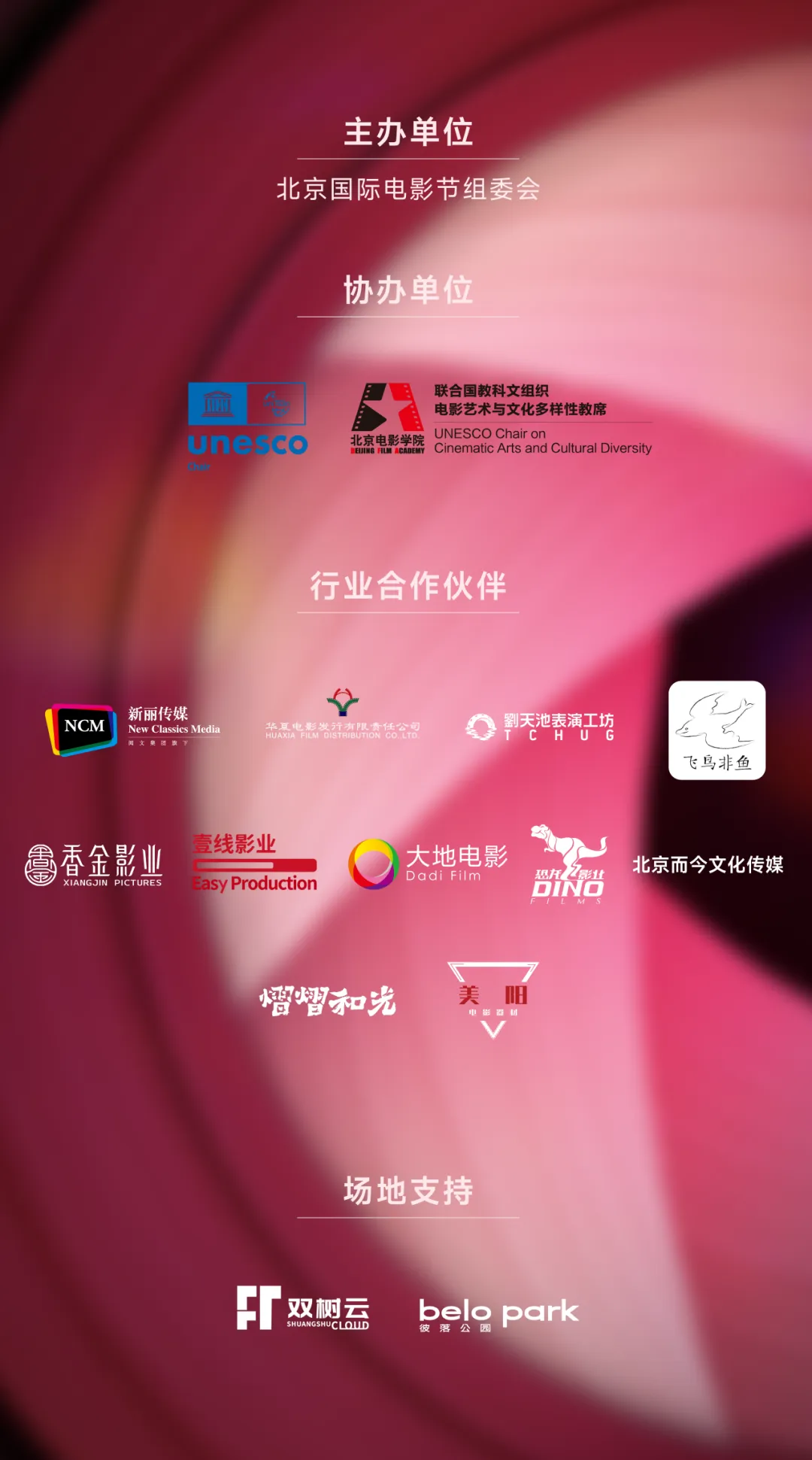Film+
"Isolation Leads to Stagnation, Market Thinking Comes First": Huang Qunfei's Film Breakthrough Strategies at the NEWHER 2.0 Distribution Masterclass
"Film quality is the foundation, but without organic word-of-mouth promotion, even the best content may go unnoticed."
- Huang Qunfei
On the one hand, the growing popularity of short videos and micro dramas has immersed people in a fragmented entertainment experience. On the other hand, the traditional film industry is facing challenges. In such a landscape, the NEWHER2.0 Distribution Masterclass provided a different perspective, bringing new hope for the future of the film industry.
Huang Qunfei, a leading figure in China's film distribution industry, has been deeply involved for more than 30 years. He planned and participated in the distribution of dozens of classic films, including Assembly, Ip Man, and Silent Witness. He holds several positions, including vice president of the China Film Distribution and Exhibition Association and distinguished researcher at the National Institute for Cultural Development Strategy, and is regarded as the "barometer of the Chinese film market". With his sharp insights and practical experience, he helps young creators cut through the fog and directly address industry pain points and future opportunities.
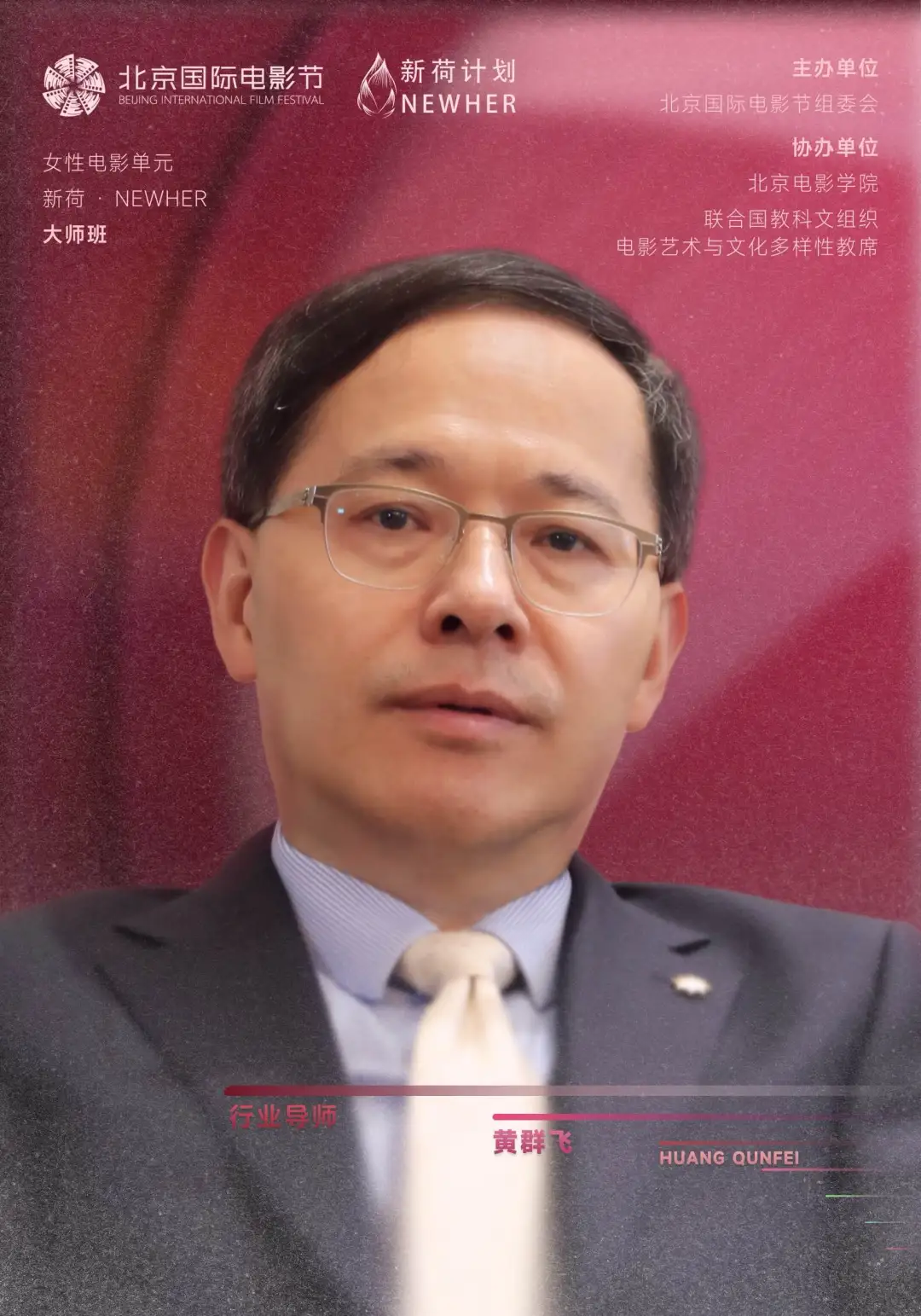
▍ Subject Matter Determines Fate; Genre is the Foundation of Success
"Subject matter determines box office performance. When considering the subject matter and content, market demand, story content, and genre are all indispensable."
- Huang Qunfei
Huang Qunfei pointed out straightforwardly that the success or failure of the film market begins with the choice of subject matter. Taking the box office data of recent years as an example, he candidly stated that "subjects such as rural life, ethnic minorities, children, industry, and sports carry higher risks", while crime investigation, women's emotional, and socially topical genre films are more likely to achieve market breakthroughs. He particularly emphasized: "Commercial films must adhere to genre conventions; the story content, market demand, and genre are all indispensable."
"The success of Lost in the Stars, No More Bets and A Place Called Silence is due to the combination of genre-driven narrative and emotional resonance." Using recent films that staged a sleeper success as examples, he advised young directors: "If a new director chooses to make a comedy, he needs the support of a big star; if he chooses a suspense, he needs a strong narrative pace and topical relevance." He provided an example: "The reason Lost in the Stars succeeded is that it is not only a suspense film - it also incorporates a female perspective and social issues, sparking widespread discussion."
Currently, Comedy films and crime-suspense-thriller hybrids gain stronger market traction. While romance films used to do well at the box office, their popularity has been declining in recent years. The 2021 film Stand by Me achieved decent box office results, but attempts to replicate its formula in 2024 failed. Huang Qunfei analyzed: "Romance films need to embrace new perspectives to resonate with audiences." At the same time, he pointed out examples of outdated subject matters: "For example, a certain Spring Festival comedy-romance film follows a formula quite similar to those from a decade ago. However, audiences' preferences and expectations have changed, and they now expect more innovative elements. In today's market, continuous innovation is more likely to resonate with audiences than relying solely on nostalgia."
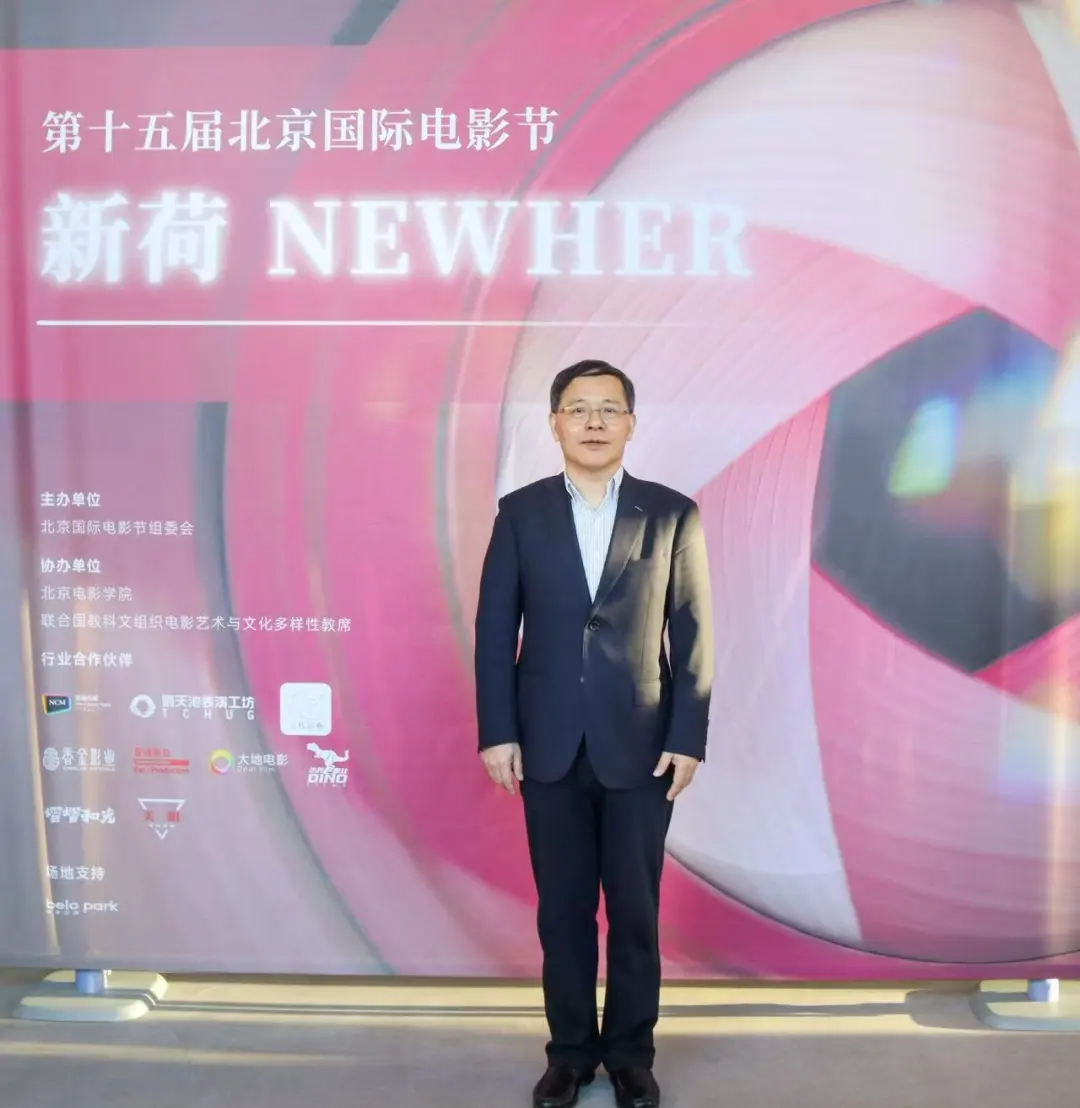
At the Event
▍ As Audience Changes, Topical Relevance Is the Only Way to Become a Hit
"Too many bad movies? No, it's the audience that has changed."
- Huang Qunfei
Facing the 2024 film market's 20% year-on-year decline, Huang Qunfei candidly stated that the "disappearance of audience patience" is the core issue. In today's new media era, entertainment forms such as short videos and gaming are severely diverting attention, making it essential for films to provide a "must-watch reason": "With ticket prices at 40 yuan, why should audiences choose you? It's either emotional resonance or topical relevance." He cited examples such as YOLO and Like A Rolling Stone, pointing out that the combination of "female-centric subjects + social issues" has been effective in attracting audiences: "Like A Rolling Stone focuses on the plight of women and can easily resonate with the public; YOLO uses the topic of weight loss to elicit empathy, and while controversial, it also generated significant attention."
Huang Qunfei pointed out that topical relevance is crucial in the process of film promotion and distribution. "Promotion and distribution are not lifesavers, but they can boost the buzz." He reminded directors: "Film quality is the foundation, but without organic word-of-mouth promotion, even the best content may go unnoticed. Creation of the Gods I unexpectedly became a hit with short videos of the Hostage-Son Army, exemplifying the golden rule of the new media age."

Huang Qunfei Shared at the Event
▍ Public Opinion Is a Double-Edged Sword; Promotion and Distribution Demand Crisis Management
"The audience criticizes you? Silence is golden; to respond is to lose."
- Huang Qunfei
Crisis management skills are also crucial during the promotion and distribution. Using the promotion of Bureau 749 as an example, Huang Qunfei highlighted the importance of public opinion management: "After the director publicly responded to negative reviews, the film's box office dropped sharply the next day, showing that losing control of public opinion can have a severe negative impact on a film." He emphasized that the publicity and the promotion and distribution team must have crisis management capabilities: "Negative public opinion is inevitable, but confronting netizens head-on is suicidal. The power of public opinion can't be underestimated - it can make or break a film. Last Suspect temporarily moved up its release date and relied on word-of-mouth to stage a sleeper success, which is a textbook move."
If one is confident in the film's content, one can conduct preview screenings for promotion and distribution. "Traditional promotional strategies now pale in comparison to organic audience-driven dissemination. Strategic preview screenings have proven more effective in stimulating spontaneous viewer engagement and diffusion than heavy investment in paid promotions." Regarding "sympathy-driven marketing," Huang Qunfei advised moderation: "The first time it may be effective due to sincerity, but repeated use of emotional guilt-tripping tactics risks backfiring. The audience hopes to gain emotional resonance from the film rather than be manipulated by moral coercion."
▍ Female Directors, Maximize Your Strengths
"Don't try to please male audiences; female-centric themes should go to the extreme!"
- Huang Qunfei
In 2024, female-centric subjects showed unprecedented vitality and impact. Zhang Xiaoyu, an outstanding female distributor and former founder of a major domestic cinema chain who successfully developed, operated, and managed over 300 theaters, joined Huang Qunfei at the NEWHER 2.0 Distribution Masterclass to delve into the market logic and creative core of the explosive success of female-centric subject films.
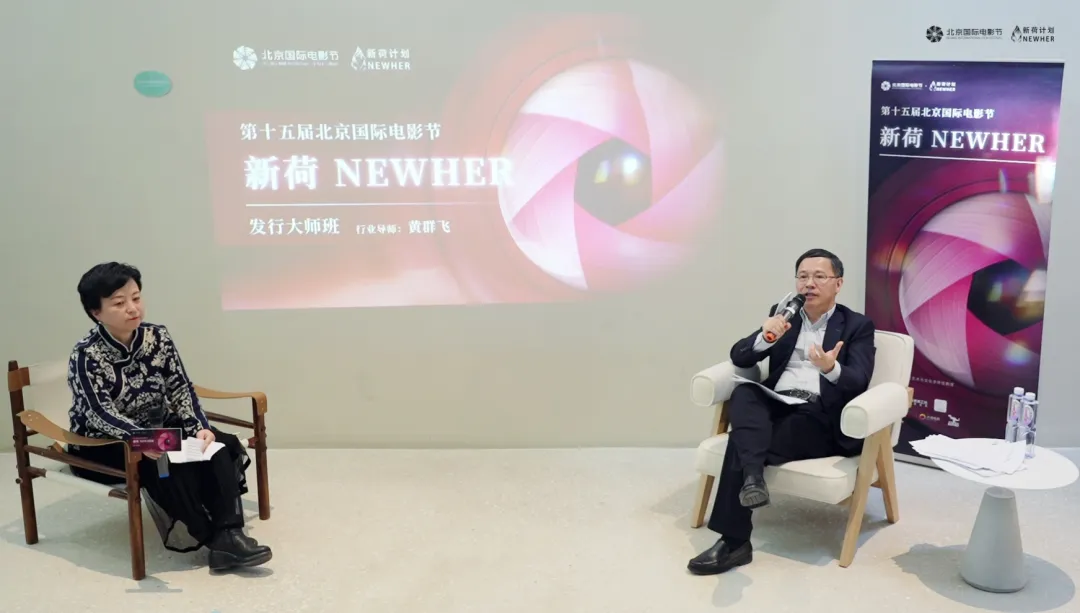
Discussion Between Huang Qunfei and Zhang Xiaoyu at the Event
Zhang Xiaoyu: Based on the data we've compiled, the proportion of female audiences in the film market has steadily increased from 2018 to 2024, reaching 58% now. For example, the desire-to-watch index for the film Her Story is especially high among women aged 25-29, and women bring a large number of male viewers to the cinema. What profound impact do you think the current success of female-centric subjects has had on the entire film industry in terms of creation, distribution, and market?
Huang Qunfei: Women now dominate the film market, with a decisive role in deciding which films to watch. This is a positive trend for the industry because we can use it to first attract female audiences to cinemas and then attract male viewers of the same age. Just as consumption is driven by women, the film market also has this characteristic.
Zhang Xiaoyu: Many female directors today feel conflicted during the creation process, unsure how to balance the preferences of male and female audiences. What do you think about this?
Huang Qunfei: Female directors have a natural advantage: they are inherently skilled at emotional insight, which is the key to box office success. Take Hi, Mom and B for Busy, for example. Director Jia Ling broke through with the mother-daughter relationship, while Director Shao Yihui captivated audiences with the charm of Shanghai. Neither of them intentionally balanced gender perspectives; instead, they pushed female narratives to the extreme. For example, Her Story had only 20% male viewers, but it was still a box office success. Why? Because women took their boyfriends to the cinemas. Therefore, when creating works, female directors do not need to deliberately cater to male audiences. Instead, they should delve deeply into the connotations of female-centric subjects and fully showcase women's advantages and characteristics. In B for Busy, the director addressed women's topics without making male viewers feel alienated - both sides could accept it, and it was handled exceptionally well. This is something everyone can learn from. I encourage directors to confront difficult topics like domestic violence, workplace discrimination, and fertility anxiety. The more real and painful they are, the more discussions they will have. Female directors should fully leverage their strengths - films that play it safe are unlikely to break through in the market.
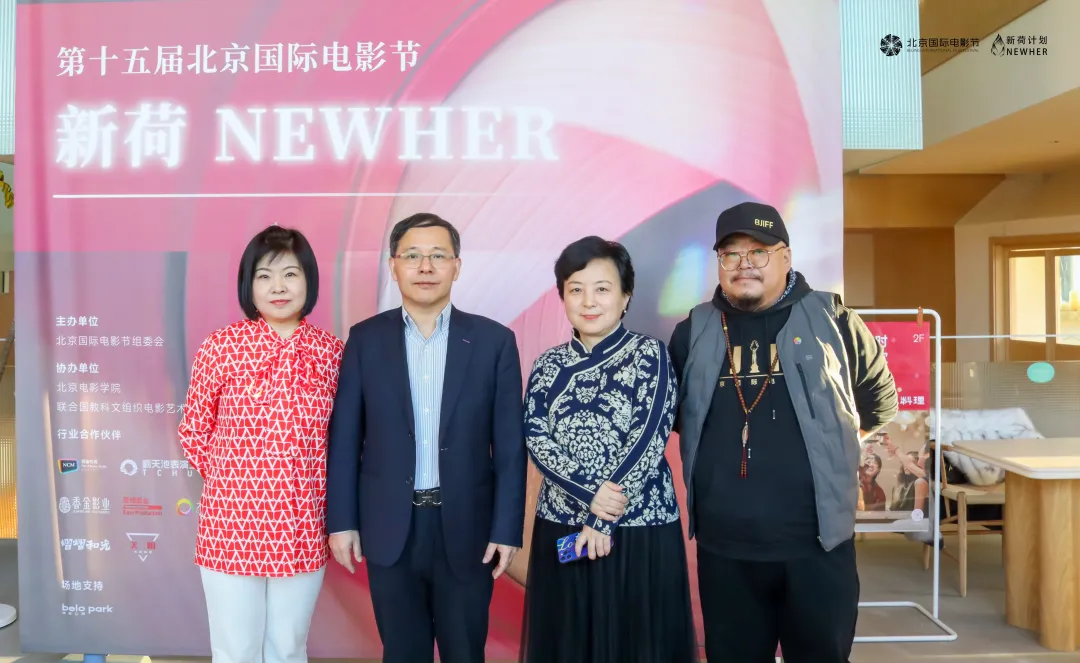
Group Photo at the Event
▍ Ultimate Advice for Newcomers: Don't Work in Isolation!
"Adopt a market-oriented mindset early on - when writing the script, consider how to get the audience to pay to watch it!"
- Huang Qunfei
At the NewHER 2.0 Distribution Masterclass, Huang Qunfei urged young directors to "adopt a market-oriented mindset early on": "Go to cinemas more often, observe the audience, and even listen in on their discussions. Understand the audience's needs and don't work in isolation. There's no shame in making short films or micro-dramas; it's a necessary path to sustain your team and gain experience." He especially reminded female directors: "Going solo makes success difficult - find a reliable producer! Your job is to create a good film, and his is to secure funding and resources."
"China's film market remains the only growing market globally, and the future is in your hands!" Huang Qunfei encouraged young directors to persist in their creation: "Film is an art, but it's also a business. Only by combining art with the market can you create works that achieve both critical acclaim and commercial viability. The year 2025 marks the 130th anniversary of cinema and the 120th anniversary of Chinese film. Neither television nor short videos have killed cinema because human nature will always crave deep emotional resonance."
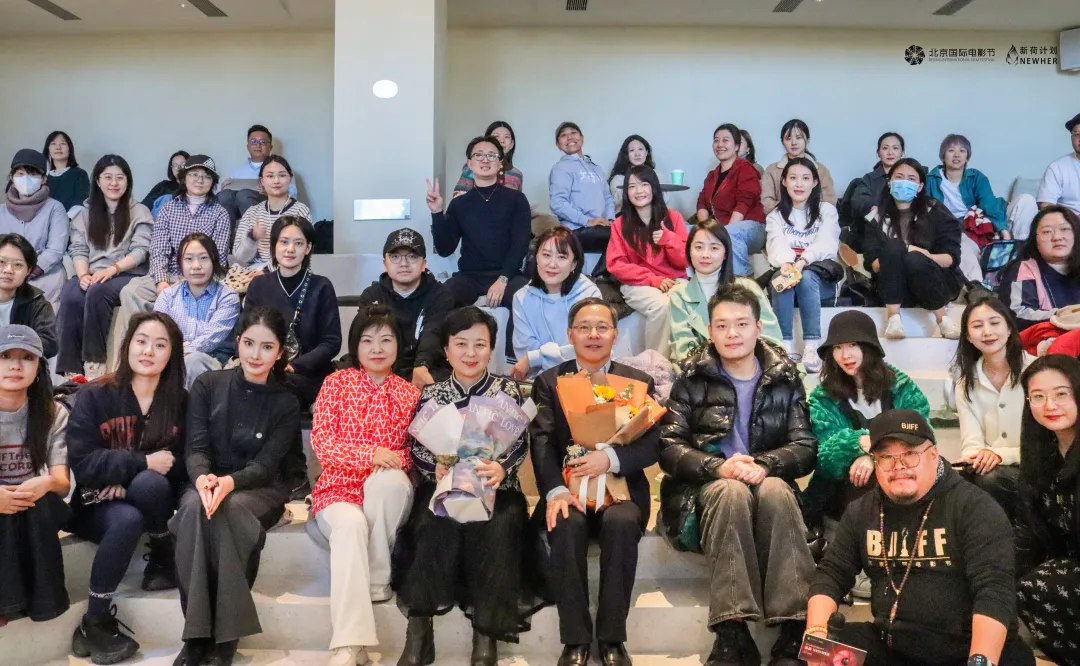
Group Photo at the Event
Q&A
Audience: For those new to film production, the film revenue-sharing model can be quite complex. Could you elaborate on the current film revenue-sharing model?
Huang Qunfei: In the current revenue-sharing model, the production and distribution sides collectively receive 43%, while the cinema chains and theaters take 57%. However, before the revenue is shared, 5% is deducted for the special film fund and 3.3% for value-added tax, leaving about 91% of the box office revenue to be shared. The production side then receives 43% of this 91%. If a distribution agent is involved, their commission can be up to 15%, depending on negotiations and whether the distributor advances promotional costs. For example, if the box office revenue is 100 million, after deducting the fund and tax, 91 million is left for sharing. The production side theoretically gets 43% of 91 million. If the agent's commission is 10%, the production side's actual income is calculated after deducting the corresponding fees.
Audience: In today's rapidly evolving new media landscape, film promotion and distribution methods have changed dramatically. How can new directors determine the best promotion and distribution strategies for their films?
Huang Qunfei: For new directors, the most important step in determining promotion and distribution strategies is to first position their films. Analyze the film's genre and target audience, and consider factors such as actor popularity, fan base, and the influence of previous works. For example, if it's an art-house film, you can't follow the promotion and distribution path of a commercial film. It is recommended to work with smaller, specialized distribution companies in the market and opt for split-distribution or art-house cinema distribution, as well as a differentiated release schedule. Choose the appropriate platforms for promotion based on the film's genre and target audience. At the same time, emphasize topical relevance and learn to create buzz to attract viewers.
Audience: With your extensive experience in the film industry, you've witnessed many changes in the industry. Given the rapid rise of short videos and micro dramas, which have swept through the film industry, how do you think the industry should respond to this impact?
Huang Qunfei: We can't just complain - we need to reflect on ourselves. The Internet has changed how audiences engage with entertainment, exposing them to a vast amount of content and reducing their patience. We must adapt to the trend. On one hand, we should attract audiences with emotional depth and compelling subject matters; on the other hand, we need to stay resilient, as this is part of a cycle. Short videos are popular right now, but audiences might eventually look for something else. Young directors can start by making short films or micro dramas to gain experience and sustain the industry chain. The key is to create quality content and add elements that resonate, empathize, and connect with young audiences.
The NEWHER Female Film Section is hosted by the Beijing International Film Festival Organizing Committee and co-organized by the Beijing Film Academy and the UNESCO Chair on Cinematic Arts and Cultural Diversity. The NEWHER Female Film Section extends its gratitude to the UNESCO Chair on Cinematic Arts and Cultural Diversity for its steadfast support. The Chair aims to advance academic research and content creation on using cinematic arts to safeguard the diversity of cultural expression and cultural heritage through global inter-university cooperation, as well as to develop youth capacities to create audio-visual artistic expressions that recognize and draw from world's diverse cultures. Since its inception, the Chair has aligned with UNESCO's overall priority of gender equality, ensuring that high attention is paid to the participation of female experts, scholars, artists, alumni and young students across all initiatives. The Chair utilizes digital tools to empower communities - particularly ethnic minorities and women - in creating culturally rich cinematic arts, bridge the digital gender gap, and promote inclusivity in the field of culture and creativity, thereby enhancing cross-cultural exchanges and mutual learning. Furthermore, the Chair supports the dissemination of culturally diverse artistic works, maintains close ties with partner institutions, local communities, and other stakeholders, and works to strengthen cooperative networks and increase public awareness. It gives more young people, women, and small island nations a platform to showcase their diverse arts and cultures, as well as expands their development opportunities in film and television arts, cultural and creative industries.
